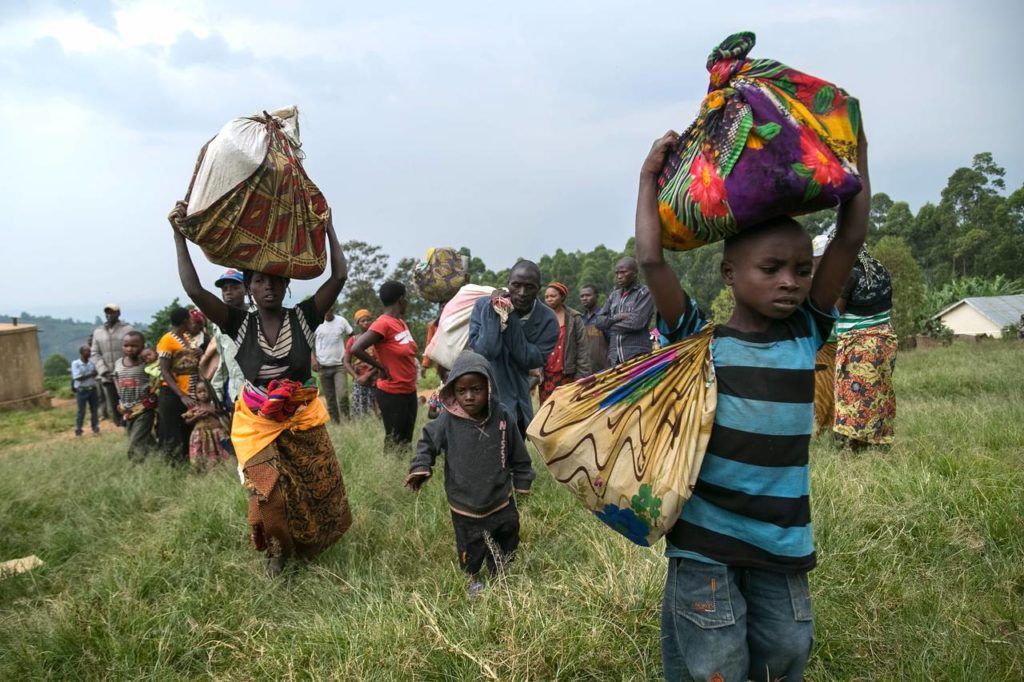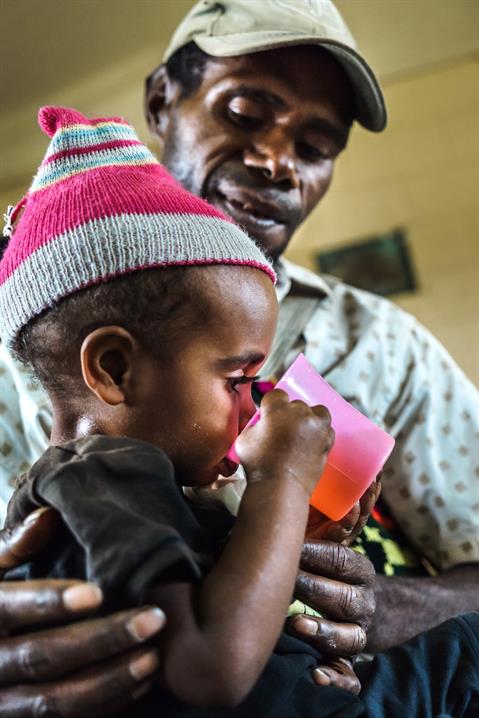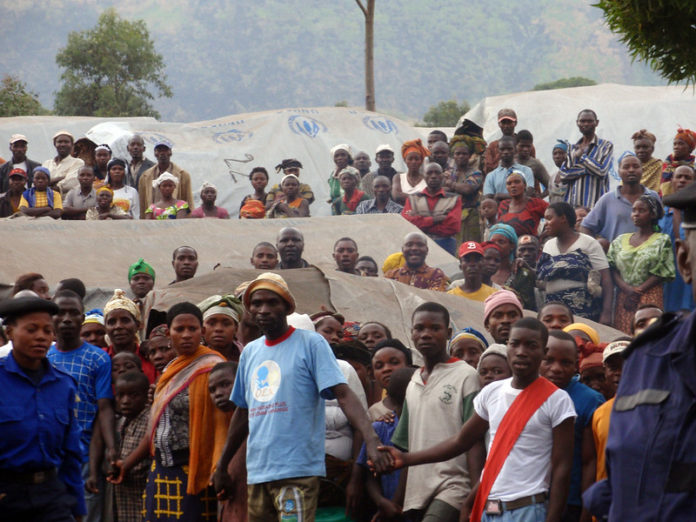INTRODUCTION
The Democratic Republic of Congo or simply DRC is a country in Central Africa. It is the 2nd largest country in Africa after Algeria by area, the 11th largest in the world and 4th most populated in Africa. It possesses many natural resources; it is the highest copper producer in Africa and the world’s largest source of cobalt.
Since gaining independence from Belgium in 1960, Congo and its civilians have experienced several economic, political and humanitarian crises including war which took millions of lives. Despite being resource-rich it is still one of the least developed countries in the world.
HISTORICAL BACKGROUND
If we look at Congo from 1885 to 1908, there was personal rule (enslavement). From 1908 to 1960 they had colonialism. After that they got independence in 1960 but their leader got assassinated in1961. Then they had a dictatorship rule for over 3 decades 1965 till 1996. Congo has great wealth but no proper government so it is an open opportunity for every powerful state to exploit and to fight free for acquiring Congo’s resources. From 1998 till 2002 it was at the center of Africa`s World War, which resulted in the deaths of its people from violence, hunger and disease.
2nd MOST NEGLECTED CRISIS IN 2019
DR Congo’s compassionate crisis took a downturn in 2020 because of an upsurge in violence and food insecurity. The nation became home to the biggest number of new internal refugees in the world, with a normal of 6,000 individuals constrained from their homes each and every day. Communities fled brutal violence, houses were razed, and families were left without access to basic services like water or healthcare.
Donor fatigue was matched by a lack of international political initiatives to bring stability to this African nation. About 100 armed groups were reportedly operating in the eastern parts of the country, wreaking havoc on communities. Despite the presence of UN peacekeepers, the Congolese government and the international community largely failed to protect civilians from being killed, women from being raped by armed men, and children from being recruited by armed groups.
In total, more than five million people are currently internally displaced within DR Congo, and an additional million have fled the country, with the majority living as refugees in neighbouring countries.
Humanitarian needs soare
Repeated violence and displacement has left vast amounts of land unfarmed, and people homeless and cut off from their livelihoods. Combined with a slump in the economy and the economic impacts of Covid-19, this meant that hunger levels and humanitarian needs have soared. Almost 20 million people were reliant on aid by the end of 2020, compared with some 13 million people the year before. On top of this, the country was affected by two Ebola outbreaks.

Little international support
The gap between humanitarian needs and support was alarming. Less than 33 per cent of the money required to meet the needs of the Congolese people was received, making it one of the world’s most underfunded crises. The stark funding reality in 2020 led the United Nations to appeal for funding to support only 10 million out of the 20 million people in need in 2021. Decades of conflict have created donor fatigue and a lack of willingness to acknowledge or address the emergencies that are unfolding against a backdrop of a protracted crisis.
CAUSES AND CONSEQUENCES OF CRISIS:
Over the past years, the humanitarian situation in Democratic Republic of Congo has deteriorated dramatically. The crisis has deepened and spread all across Congo, affecting people in areas previously considered stable and stretching the coping mechanism of people in already impacted areas.
Firstly, the humanitarian needs in DRC have doubled over the last year, secondly the children suffer from some of the highest rates of malnutrition globally. There is a 75% increase in food insecurity from the pre-crisis situation. The Democratic Republic of Congo is facing an epidemic, sexual violence, shattering lives of countless women and children. Recently Congo experienced its worst outbreak of cholera in 15 years. The dramatic effect on education due to the ongoing conflict is devastating, numerous children have dropped out of schools. The lack of good governance or even a functioning government has left the people of Congo in dire straits. The displacement of local population within the country is another major issue created due to the conflict. There are limited facilities for communication within the state. Kidnappings, human trafficking, and house burning etc are also some of the worst implications of the conflict.
Congo is now host more than 4.5 million internally displaced people with hundreds of thousands living in overcrowded refugee camps in neighboring countries like Uganda and Rwanda
CONFLICT MENAGEMENT MEASURES
Intervention of Influential Organizations
Influential organizations like the United Nations can help in managing the ongoing violations of humanitarian law in Congo. Such organizations not only provide aid and assistance to the people in need, but they can help in resolving the ongoing conflict.
Protection of Human Rights
It should be ensured that civilians areas have access to basic human rights. First of all, the most necessary right “The right to live” must be ensured by the state authorities. International organizations also have responsibility of monitoring and ensuring the provision of human rights
Resettlement of Refugees
Resettlement of the vulnerable refugees, is very vital for their survival. They are stripped of their homes, rights, and loved ones. They are in dire in need of aid and assistance for their survival. States can develop safe sanctuaries for the refugees to live in. Providing them a safe place of shelter is of utmost importance, because such vulnerable people may be exploited by extremist entities. All states should investigate and punish such entities who exploit refugees and migrants supporting

Rehabilitation and Economic Recovery
Livelihoods must be supported, stabilization of disaster and conflict affected individuals, communities and societies, ensuring that relief, recovery and development are addressed simultaneously. Support local economic recovery for medium and long-term jobs and employment, for income generation opportunities and finding development solutions for displacement. Support economically and environmentally sustainable livelihoods, and inclusive economic growth by strengthening resilience of countries and their ability to cope with unavoidable shocks
French charity stops humanitarian work
In a rather disturbing development recently the French charity “Doctors without Borders (MSF)” announced on March 21 that it would stop its humanitarian aid operations in two villages in the north eastern Ituri province of the DRC because of an increase in violent attacks, two of which recently targeted its workers. The MSF has called on armed groups to respect the international law protecting humanitarian aid workers. It also asked the government to carry out an investigation into the attack but this request has not been responded to so far. The shutting down will badly affect those in need of medicine and medical aid, the first victims will be children and internally displaced people who had access to free medical care in this region.
CONCLUSION
The humanitarian crisis in the DRC can only be resolved through the public and explicit commitment of all stakeholders to respect the current situation in particular as regards the limitation of presidential terms of office. The government too will have to make a clear commitment to ensuring that the human rights and rules are respected and must cease all use of the justice system as a political tool.




